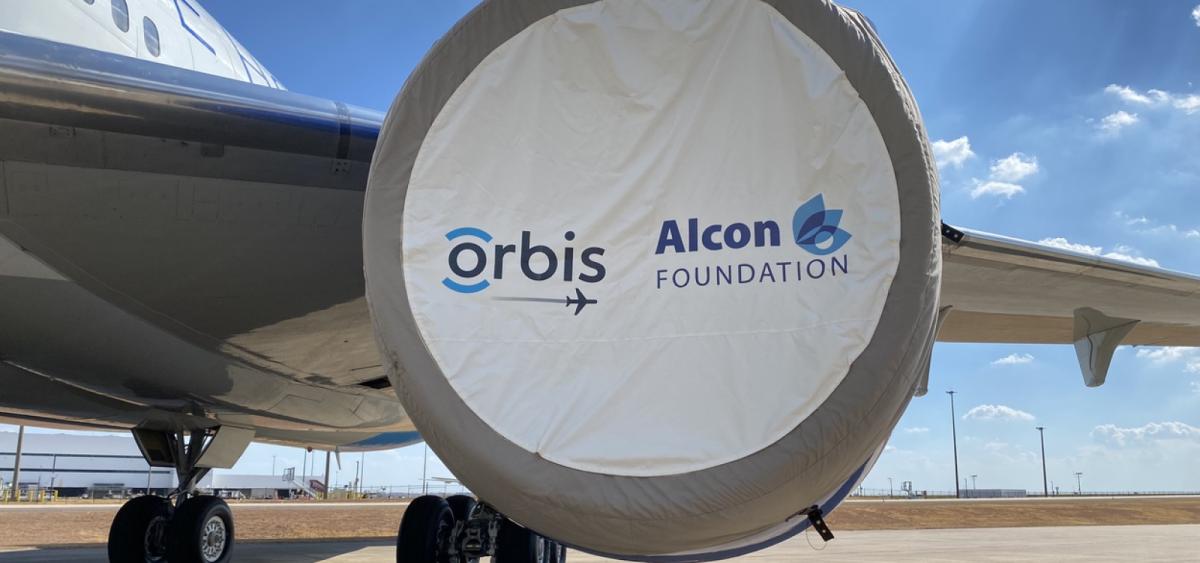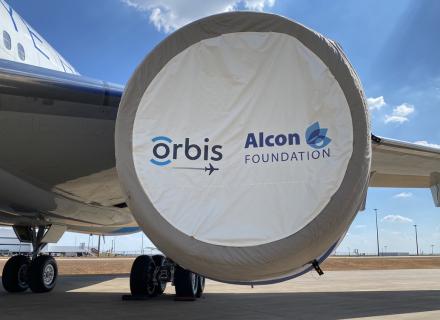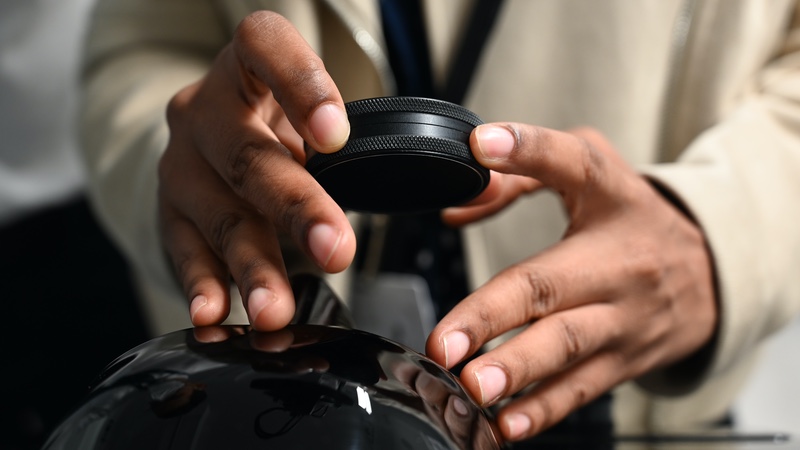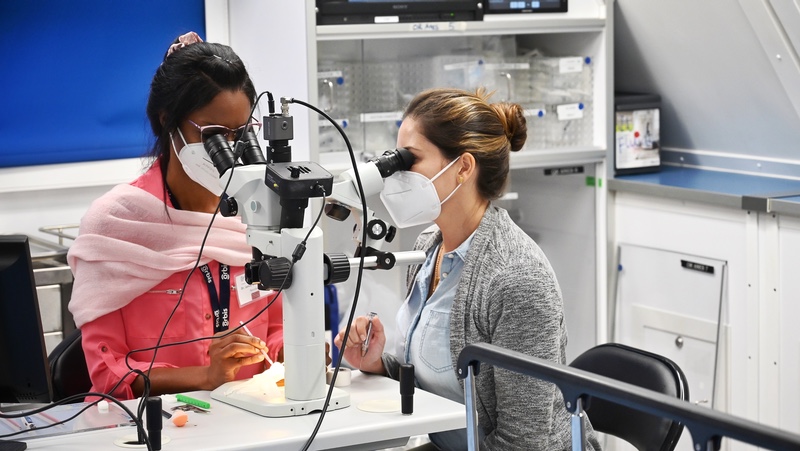

World Sight Day 2022: Taking to the Skies to Help People Love Their Eyes
April 16, 2024
3 mins read


April 16, 2024
3 mins read
Imagine finding out that you need life-altering eye surgery to avoid permanent blindness – but the closest doctor qualified to perform the procedure is a thousand miles and an ocean away. The stark reality is that 1 billion people are currently living with uncorrected vision impairments, and 90 percent of them live in low- and middle-income countries – where there happens to be a lower rate of ophthalmologists who can deliver specialized surgical eye care.1
This World Sight Day, the International Agency for the Prevention of Blindness (IAPB) continued last year’s theme of #LoveYourEyes, a call for people to prioritize their eye health. Helping patients love their eyes and expanding their access to eye care is an important pursuit – but it can’t happen unless we also expand access to specialized training and education for the doctors who serve them.


At Alcon, we’re working to bridge this gap and bring eye care to the communities that need it most. As the global leader in eye care, we believe that when people see brilliantly, they live brilliantly.
That’s why, together with partners like Orbis International, we are working to enhance vital eye care services and systems and increase volume and access to quality eye care for underserved communities across the globe.
Our journey with Orbis first took flight more than four decades ago. Since then, the Alcon Foundation and Alcon Cares have provided monetary donations and state-of-the-art ophthalmic equipment, pharmaceuticals and supplies for the Flying Eye Hospital, the world’s first-and-only fully accredited ophthalmic teaching hospital aboard an airplane, and its partner hospitals around the world. Through our support, we’ve helped ophthalmologists, ophthalmology residents, nurses and biomedical engineers across the globe advance their eye care techniques and fight avoidable blindness in their communities. We’ve also tapped our expert biomedical engineers and trainers to participate in Orbis programs, sharing their skills and knowledge to help participants learn to operate and maintain critical medical technology.


In August 2022, we helped kick off Orbis’ first in-person training program since the start of the pandemic – bringing together nearly 50 participants from countries throughout the Caribbean to hone their cataract removal skills with cutting-edge ophthalmic surgical simulation training onboard the Flying Eye Hospital, and additional hands-on training at the Alcon Experience Center (AEC), a state-of-the-art training facility on Alcon’s campus.
The simulation training allowed Eye Care Professionals (ECPs) to grow their confidence in a training environment before moving on to real-life operations, which has been shown to improve outcomes for patients. A select group of these participants also completed a train-the-trainer course, deepening their ability to educate the next generation of ECPs.
In 2021 alone, we helped train more than 680 ECPs in 75 countries, who performed 3.6 million eye screenings and examinations and 38,000 surgeries in Ethiopia, Bangladesh, India, China, Mongolia, Vietnam, Zambia, Ghana, Peru, Nepal, Guyana, Bolivia, South Africa and elsewhere.
Through our partnership with Orbis, we’ve helped a hotel restaurant worker in Barbados receive glaucoma surgery and see his grandchildren clearly for the first time in eight years. In Vietnam, we helped restore the sight of a child whose eyes were injured after she tripped and fell when she was four years old.
We’ve also teamed with Orbis to help train pediatric ophthalmologists like Dr. Ho Hoang Phuong Thao, who, before training under our program, was unable to perform surgery. After training in Bangladesh, Dr. Thao was able to confidently perform cataract surgeries, ranging from simple to complex cases.
It’s stories like these that make us proud of the deep impact we’ve made and remind us of the new heights we can reach when we come together to fight avoidable blindness in our communities.